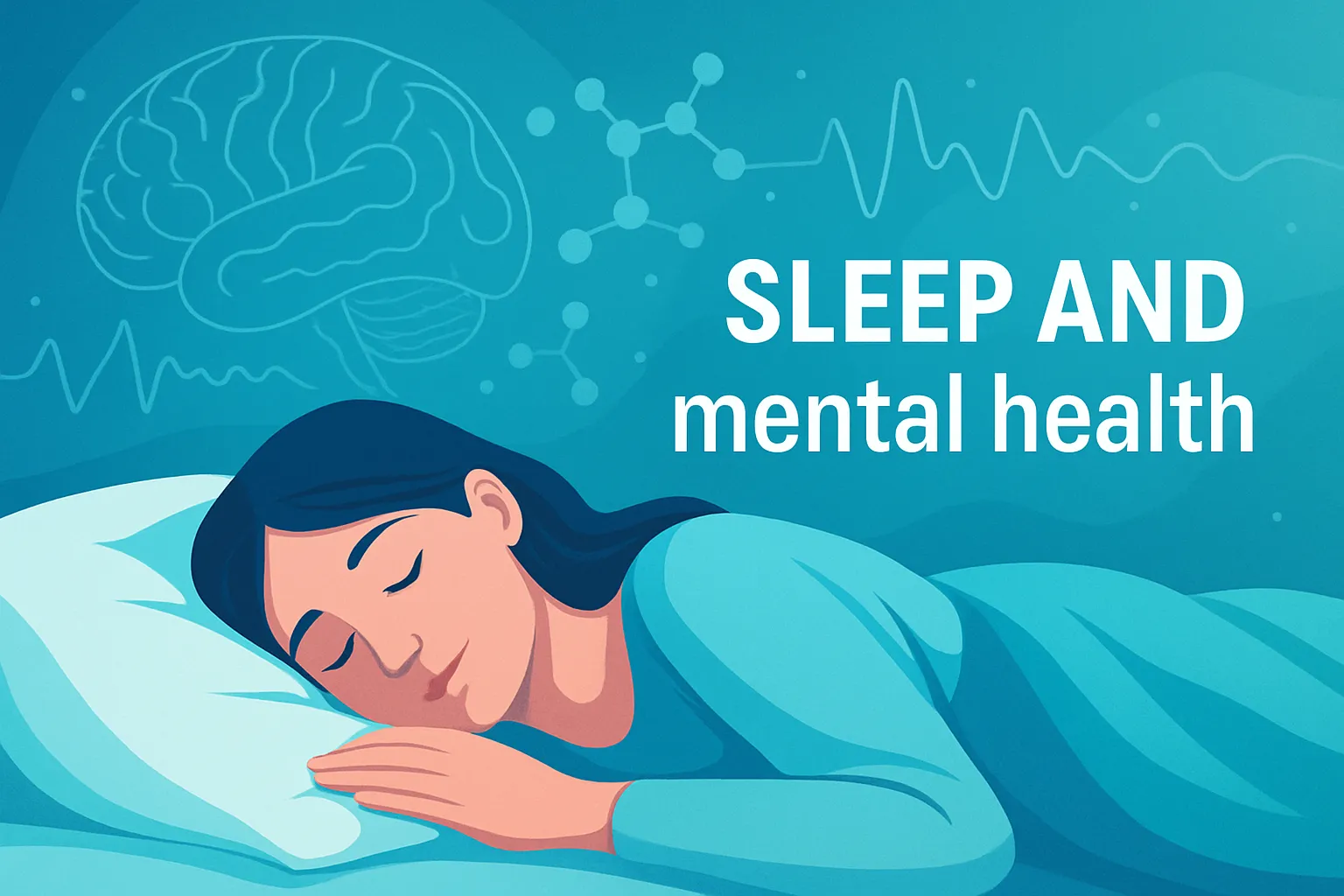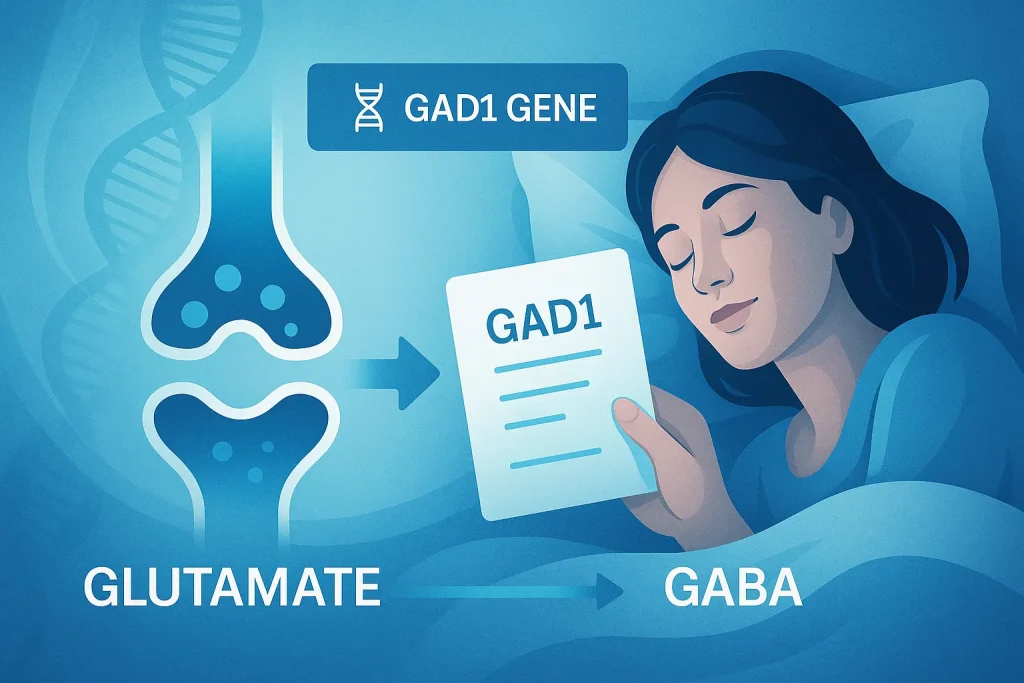
Sleep and mental health are deeply connected—yet in our constantly connected world, quality rest is often the first thing we sacrifice. At Elite Gene Labs, we believe that sleep is a foundational process that fuels emotional balance, mental clarity, and physical vitality. Emerging genetic insights, particularly around the GAD1 gene, reveal that how well you sleep may be influenced by your DNA. In this article, we explore why sleep matters more than you think—and how understanding your genetic makeup could hold the key to improving your mental health, energy, and overall wellness
Table of Contents
Sleep and Mental Health Importance
Sleep is not merely a period of rest but a critical time when the brain processes and consolidates memories, manages stress, and repairs itself. It plays a pivotal role in cognitive functions, emotional regulation, and mental resilience. Lack of adequate sleep is linked to a variety of mental health issues, including depression, anxiety, and mood swings. Ensuring regular and restful sleep can dramatically improve mental clarity, emotional stability, and psychological health.
Energy Levels and Sleep
There’s a direct correlation between the quality of sleep and energy levels throughout the day. Sleep affects metabolic processes and the regulation of hormones that influence hunger and satiety, including ghrelin and leptin. Poor sleep can disrupt these processes, leading to decreased energy levels, increased fatigue, and difficulties in weight management. By optimizing sleep, individuals can enhance their metabolic efficiency and maintain higher energy levels, thereby improving their overall quality of life.

The Role of the GAD1 Gene in Sleep
At the genetic level, the GAD1 gene plays a crucial role in the sleep-wake cycle by influencing the production of Gamma-Aminobutyric Acid (GABA), a neurotransmitter that promotes relaxation and sleep. The GAD1 gene is responsible for converting glutamate, a neurotransmitter associated with arousal and wakefulness, into GABA. Variations in this gene can affect how efficiently this process occurs, impacting sleep quality and duration.
People with certain variations in the GAD1 gene may experience lower levels of GABA, leading to difficulties in falling asleep or staying asleep, increased anxiety, and disrupted sleep patterns. Understanding these genetic predispositions through genetic testing at Elite Gene Labs can help tailor individual strategies for improving sleep hygiene, dietary adjustments, and supplementation to enhance GABA levels naturally. We do NOT recommend taking GABA to help with sleep. Especially if you do not know if you have GAD1 variations. Supplementing with GABA can make symptoms worse.
Conclusion
Sleep is a pillar of health just as critical as diet and exercise. At Elite Gene Labs, we are committed to helping you unlock the full potential of your genetic makeup to not only enhance your sleep but also boost your mental health and energy levels. Understanding your genetic predispositions can empower you to make informed decisions about your health and lead a more vibrant, energetic life.
Frequently Asked Questions
How much sleep do I need?
Most adults need about 7‑9 hours of quality sleep per night. Getting less (such as 5–6 hours) regularly can negatively affect mood, memory, and mental health.
Does poor sleep affect mental health?
Yes—insufficient sleep is closely linked to depression, anxiety, mood swings, and reduced ability to manage stress.
Why can’t I fall asleep or stay asleep?
Common causes include stress, anxiety, poor sleep habits, room environment, caffeine or alcohol, medications, and underlying medical conditions like depression or insomnia.
What is sleep hygiene?
leep hygiene refers to habits and environment that promote quality sleep—keeping consistent sleep/wake times, a cool and dark room, avoiding stimulants before bed, and limiting screen use.

